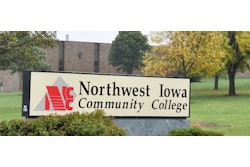Achieving the Dream (ATD) has updated their mission statement to focus on achieving equity through addressing oppression.
 Dr. Karen A. Stout, president of Achieving the Dream.
Dr. Karen A. Stout, president of Achieving the Dream.
The new mission statement reads: “when colleges intentionally design and implement antiracist and just structures, policies, and practices that combat oppression, students and their communities thrive.”
It was developed in part to acknowledge the ways in which the pandemic and the racial reckoning in the wake of the summer of 2020 has changed America. The murders of George Floyd, Breonna Taylor, Ahmaud Arbery, and the deaths of almost one million Americans to COVID-19, has had a profound impact on everyone both in and outside of higher education, said Dr. Karen A. Stout, president of ATD.
“We need a new phase zero, a bold new access agenda,” said Stout. “This vision includes acknowledging ugly truths our country bears, which began with displacement of Native Americans and other racially fueled hatred. We’re witnessing the continued violence and oppression of Black individuals. The recent string of threats toward HBCUs reminds us, the violence is still very much with us.”
Stout said the new vision statement builds upon the organization's old statement, which was already focused on achieving equity. Rather, the new statement asks community college leaders to “explicitly address” the systems of inequity that make it more difficult for students to achieve success based on race, sex, language, disability, sexual orientation, age, economic stature, and religion.
“This is not a zero-sum game,” said Stout. “Addressing racism and policies and practices that benefit Black and Indigenous and Latinx communities benefits us all.”















